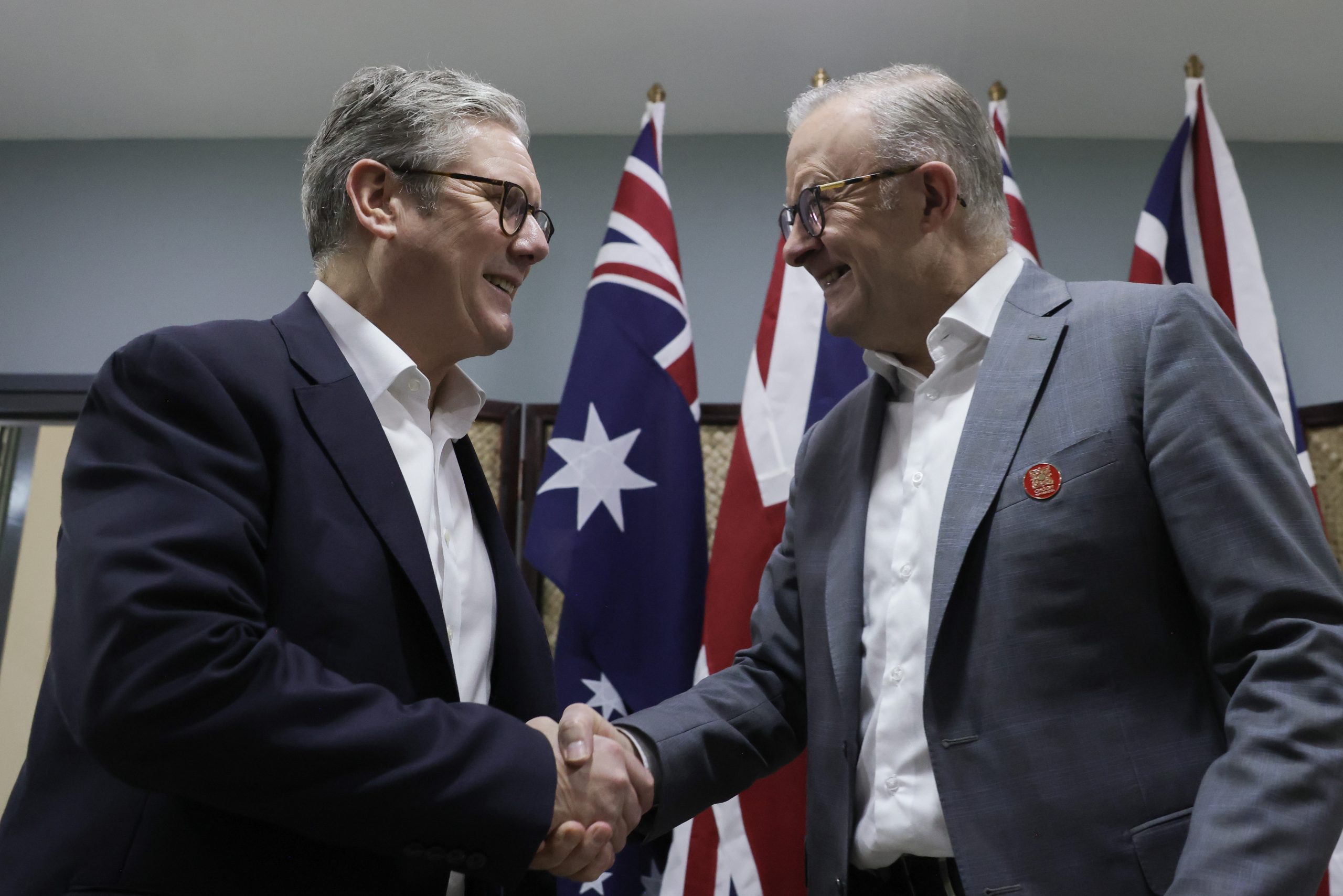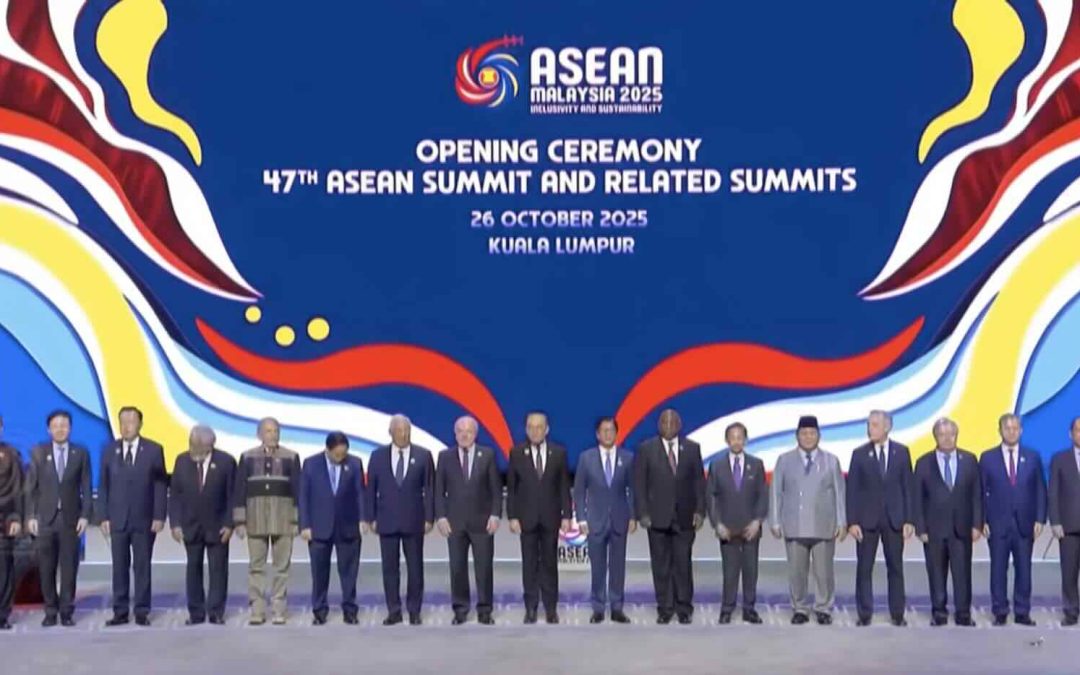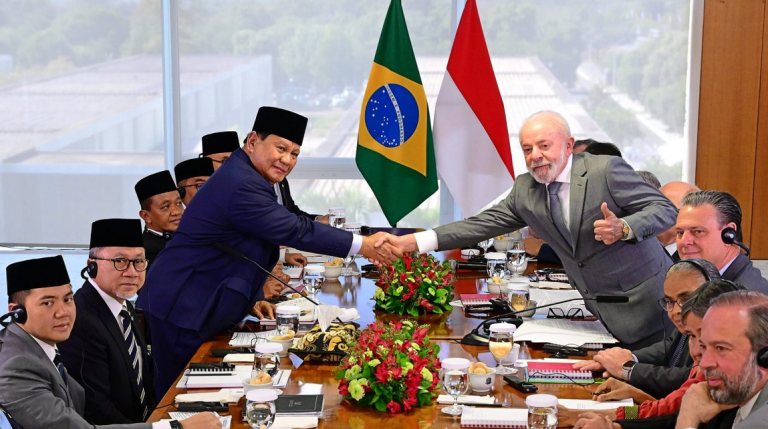The meeting between Australian Prime Minister Anthony Albanese and UK Prime Minister Keir Starmer on September 26 in London reignited debates over the future of the AUKUS security pact. Their discussions reaffirmed both countries’ strong commitment to defense cooperation. At the same time, they deliberately avoided commenting on the position of the United States, particularly amid shifting U.S. political dynamics and the current stance of the Trump administration.
Shadows of Uncertainty
The change in U.S. administration has triggered uncertainty over the continuity of AUKUS. The Pentagon is currently conducting a review to assess whether the pact aligns with U.S. national priorities. This review, which began in June, is led by Elbridge Colby, the U.S. Deputy Secretary of Defense for Policy, who is known for his skepticism toward AUKUS.
One major point of contention concerns the planned sale of nuclear-powered submarines from the U.S. to Australia. Colby has emphasized that nuclear submarines are a “rare and critical” strategic asset for the United States, while the domestic shipbuilding industry is still struggling to meet its own national demands. Additionally, there are concerns that AUKUS may not fully align with the “America First” doctrine that underpins Trump’s foreign and security policies.
Australia Remains Confident
“I have always been confident about AUKUS going ahead,” Albanese stated after his meeting with Starmer, reflecting Australia’s strong confidence in the pact despite current uncertainties. He stressed that the U.S. has consistently provided positive responses, reassuring him that the AUKUS plan will proceed as intended.
A similar sentiment was expressed by Australian Defense Minister Richard Marles. In an interview with ABC Radio on September 30, Marles asserted that “AUKUS is happening, that’s not in question.” He also added, “We’ve been engaging very well in the review,” signaling that the review process should not be viewed as a major cause for concern.
Emerging Speculations and Concerns
Despite Australia’s optimistic stance, various speculations have inevitably emerged. Some observers see the review as a normal procedure for a new U.S. administration—an opportunity to reassess and align defense agreements with evolving national priorities. This perspective is supported by U.S. Defense Secretary Pete Hegseth, who emphasized the importance of working closely with allies to maintain regional security. Moreover, the fact that the United States is the only AUKUS member that has never conducted such a review further fuels these speculations.
However, other analysts view the review process with greater concern. They argue that it may signal a potential shift in U.S. strategic priorities, including possible demands for Australia to increase its defense spending or take a more direct role if a China–Taiwan conflict breaks out. Critics worry that AUKUS could disproportionately serve U.S. interests—through military investment and strategic advantages—without offering Australia firm security guarantees in return.
There is also no clear assurance that the U.S. would defend Australia in the event of a direct conflict, particularly involving China. Similarly, China’s potential response to AUKUS-related developments remains unpredictable, which could heighten security risks for Australia itself. This is significant given that one of AUKUS’s core objectives is to strengthen regional security in the face of China’s growing power. Analysts argue this situation reflects Washington’s determination to counter China’s influence by all available means.
Awaiting the Outcome of the Review
So far, the U.S. has not released any official statements. The Pentagon has confirmed that the review is still underway and is expected to be completed in the fall, just ahead of Prime Minister Albanese’s scheduled visit to the White House on October 20. The outcome of this review will play a decisive role in shaping the future of AUKUS—determining whether the pact remains a symbol of deep strategic partnership among the three nations or begins to fracture amid shifting U.S. priorities.
Written by: Genoveva Karrenia Putryanti
Image Source: Tribune
Reference:
Denmark, Abraham M, and Charles Edel. “The AUKUS Inflection: Seizing the Opportunity to Deliver Deterrence.” Csis.org, 2025. https://www.csis.org/analysis/aukus-inflection-seizing-opportunity-deliver-deterrence.
Gardner, Jessica. “AUKUS Defence Pact: Defence Minister Richard Marles Confident That Trump Administration Will Proceed with Australia Nuclear Submarine Deal.” Australian Financial Review, September 30, 2025. https://www.afr.com/policy/foreign-affairs/pentagon-to-approve-aukus-deal-in-time-for-albanese-visit-report-20250930-p5mywc.
Pal, Alasdair. “US to Complete Review into AUKUS Defence Pact in Autumn.” Reuters, July 30, 2025. https://www.reuters.com/world/asia-pacific/us-complete-review-into-aukus-defence-pact-autumn-2025-07-30/.
Reuters Staff. “Australia’s Albanese Confident on AUKUS Pact after Meeting UK’s Starmer.” Reuters, September 27, 2025. https://www.reuters.com/world/asia-pacific/australias-albanese-confident-aukus-pact-after-meeting-uks-starmer-2025-09-27/.







